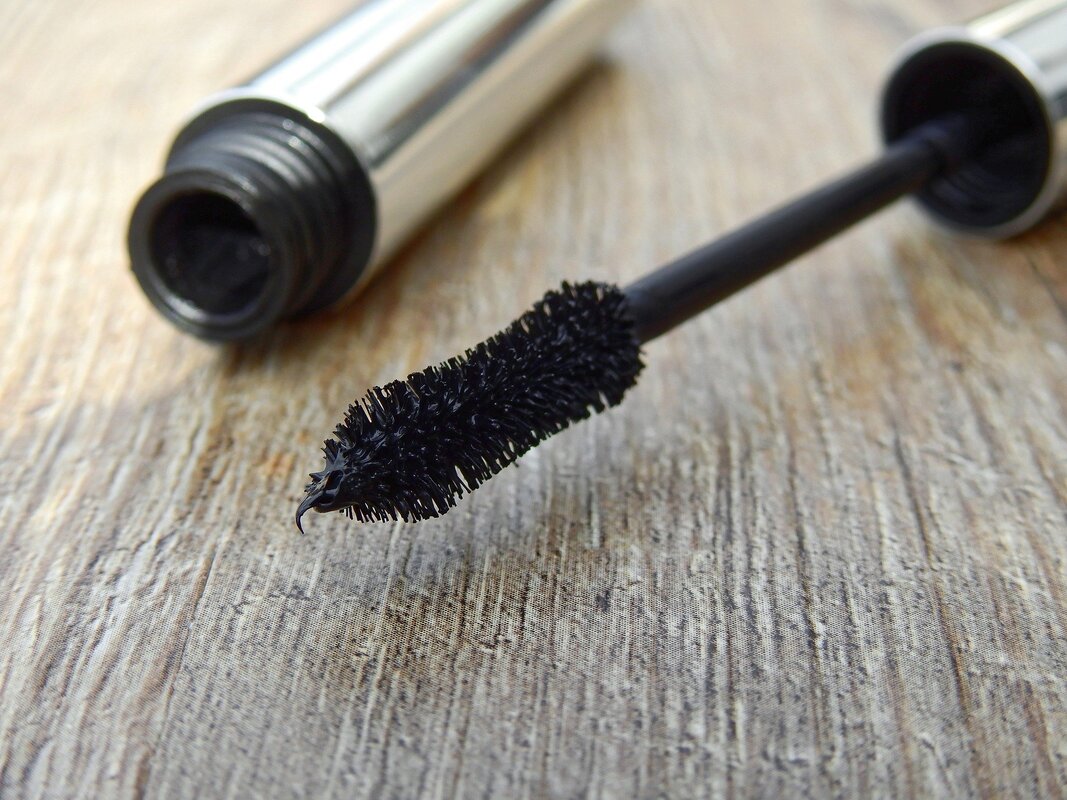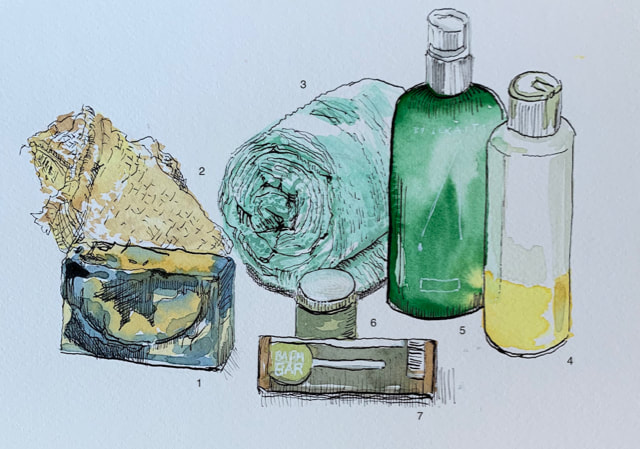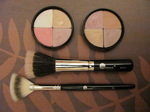|
It seems more and more of my clients and friends are developing sensitivities to eye color cosmetics, usually mascara and/or eyeliner. Have I found a mascara that is safe for all to use? No. Mascara has several problematic ingredients: shellac (maybe listed as polymer on label) in one study on contact dermatitis was found to be the key sensitizing ingredient. Another probable correlation exists with nickel allergy and mascara (and curlers). Nickel won't show up on the ingredient list because it results as an impurity in a raw material used to produce another ingredient. We know the thinner skin on our eyelids allows chemicals to go into the skin at a faster rate making contact dermatitis common around the eyes. This same article states that sweat allows chemicals to penetrate even easier. All mascaras have some kind of pigment, even the "natural" ones. That is how they darken your lashes so if you are sensitive to those you'll have a harder time. Then there is the possibility of reacting to the preservatives. Preservatives are crucial in a formulation like mascara, and even with them you need to pitch yours every three months.
Take homes: 1.) The more you use a product the higher the chance you will develop a sensitivity to it. This makes sense because you don't hear this as much with younger people. Do you really need to wear mascara every day? Definitely don't exercise/steam or sauna with it. Be sure to remove all of it every night. Don't be stubborn and rely on the old "I've always used this and it's always worked for me." Things change and YOU change. 2.) You won't find a mascara to move to just by shopping cleaner brands or reading labels. You'll have an easier time if you are a cosmetic chemist but most of us it will be trial and error--or trial and learn as my Dad says. Especially considering raw materials (the ingredients in the ingredients) can be big unknowns. I have an earlier post about the FDA's role in cosmetics. Use your best sleuthing skills. If you also react to your eyeliner or other product, see if you can find a common ingredient. Some brands have started carrying sample or travel sizes, so take advantage. 3.) Keep me posted on your trials. We can learn from each other and maybe (just maybe because we are all different) shortcut someone's tedious process. Meanwhile, if you can't go natural, curl those lashes to open up your eyes. If you have no nickel allergy use a metal crimper or try one of the heated models, like this one from blinc.
8 Comments
I love the simplicity of summer. Hair loosely fashioned on top of my head. A cute dress. No socks. Meals are easier; fruit and vegetables abound, my husband’s running the grill and if we have a late dinner it doesn’t feel like bedtime. I like my beauty routines to be simple as well. These are my favorite family skincare and first aid staples. All, except the hair towel, I retail.
I personally think it is A-OK to use shimmer products on mature skin. The key is to not wear them all over the face at the same time. I am most likely to use them:
I don’t like the term anti-aging. I understand the desire to turn back the clock but we need to be graceful and accepting with some aspects of aging. Resist media messages and sales people that use this fear to sell. Many products simply cannot do the things they claim to be able to do! A balanced life that includes whole food nutrition, ample physical activity, and deep connections with family & friends is key to a beauty that reflects health. Intuitively we know this.
How do I decide what I will use in treatments and retail? It takes me a great deal of time. For every hour I have spent with my hands on a client I have logged countless more reading, researching and sampling products. My collaboration with my formulator offers me extra confidence, as she also does her homework and has been at this for 16 years. Yes, there are synthetic ingredients that I avoid but the risks of some of them have been overblown--yet another way fear is used to market to women. “Natural” is the buzzword of the decade and it is important to know that the term isn’t regulated. I chuckle when I see advertising washed in green knowing that it consists of very commonplace ingredients, synthetics included. “Organic” is a term that is regulated, though commonly used without the proper certification. Many ingredients in my own line have met this distinction. Equally important to me is that they perform well, are affordable to many and their ingredient lists are non-manipulated and honest. Botanicals can reduce inflammation, irritation & hyperpigmentation, improve tone, stimulate collagen, reduce cellular damage and aid in detoxification. They can address all the concerns that come with aging. They work gently for gradual, dependable, beautiful and sustainable results! Colors that used to pop and give us a healthy glow are now getting neutralized or otherwise altered by the brown (hyperpigmentation) and red (couperose/rosacea) tones that many of us are seeing in our skin. Skin that isn't as uniform in color, firm, or reflective as it once was needs nourishing skin care and new ways to enhance with make-up. Today I will talk about blush make-up solutions.
My two favorite options are outlined below. In either case, take time to blend the second product into the first and build the color in translucent layers. Pause between layers and stop when it looks good. The goal is to suggest a natural flush. This takes surprisingly little product. |
Author
Amy Linville is an artist and esthetician that believes simple, sustainable and non-rushed daily skincare and beauty rituals are the foundation for finding comfort in your skin and looks, no matter your age. Archives
April 2022
Categories
All
|





 RSS Feed
RSS Feed
